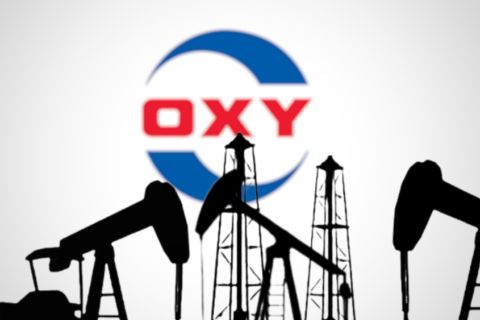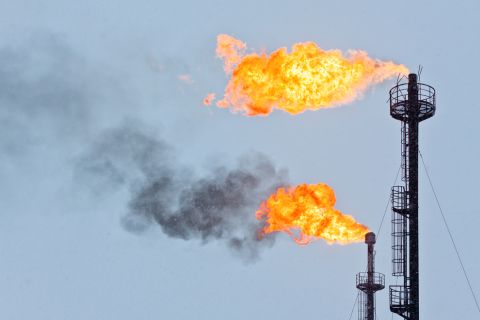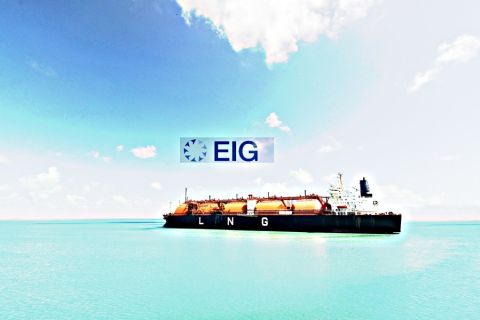From contracts for projects around the world to new technology launches, below is a compilation of the latest headlines in the E&P space.
Activity headlines
Perenco’s Success Offshore Cameroon
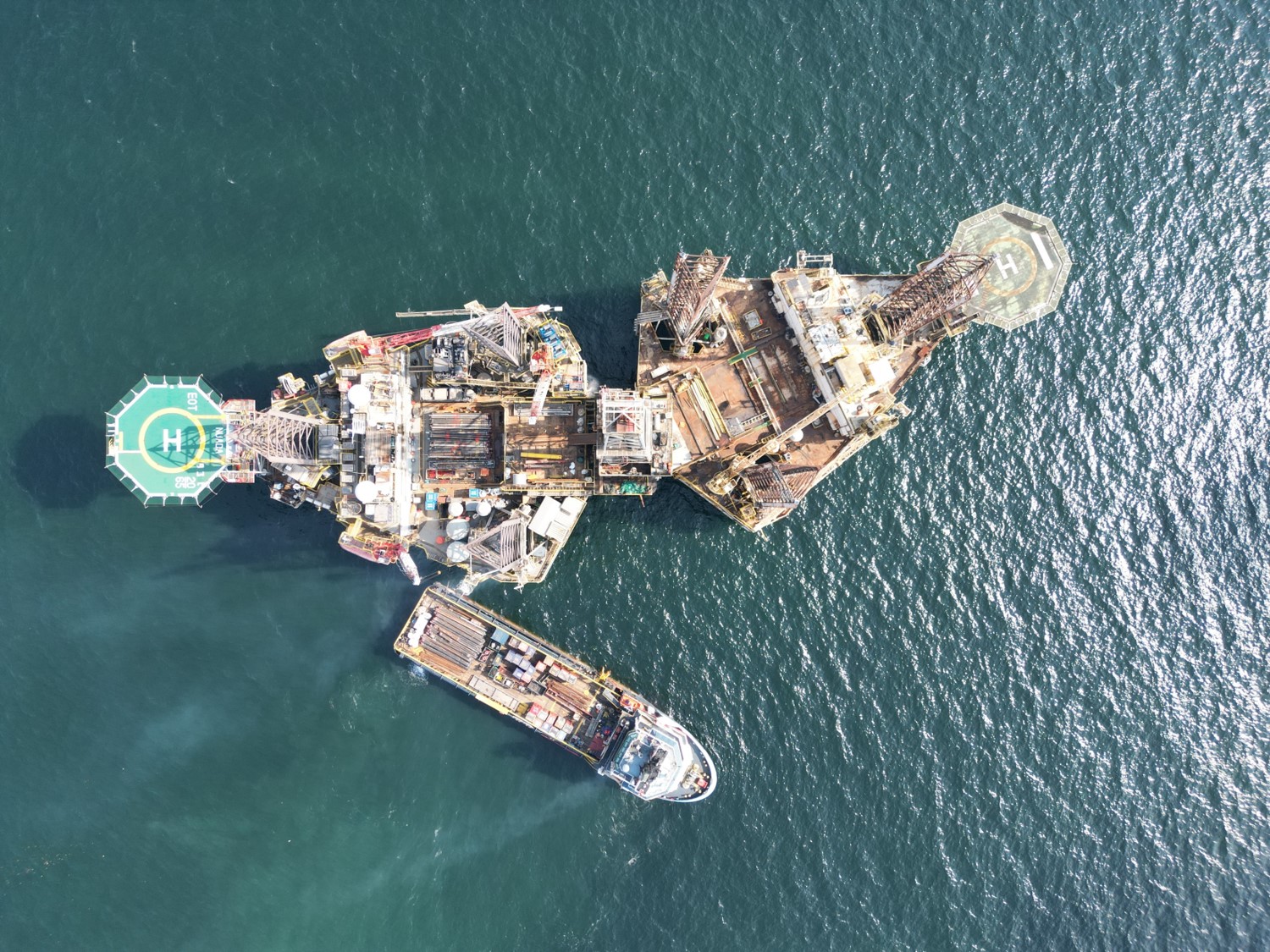
Perenco announced on June 29 it had completed its South Kole Marine project offshore Cameroon.
The program included innovative well architecture and laying pipelines.
South Kole Marine, a marginal field, was initially discovered by another operator in the 1980s and is in 30 m to 50 m water depths. Following the work, the field’s production reached 3,800 bbl/d.
Contracts and company news
Eni Selling Non-Core Congo Interests to Perenco
On the heels of announcing its planned purchase of Neptune Energy’s assets in the U.K., the Netherlands, North Africa and Asia-Pacific for $2.6 billion, Eni said on June 27 it has signed a deal to sell interests in non-core permits in Congo to Perenco.
The deal, valued at $300 million, including firm and contingent consideration, is subject to customary adjustments and regulatory authorization.
Saipem Picked for Aramco’s Marjan Project
Saipem announced June 28 it will handle the engineering, procurement, construction, and installation (EPCI) of five platforms and associated subsea pipelines, flowlines, and cables for Saudi Aramco’s Marjan Field in the Arabian Gulf offshore Saudi Arabia.
Under a long-term agreement with Saudi Aramco, Saipem was selected for the new offshore project. Saipem said the project will be fabricated entirely in-Kingdom.
Saipem said it had won a pair of contracts that were together valued at about $1 billion, including the Marjan work. The second contract is with Petrobras and relates to development and testing of autonomous subsea inspection robotics intended for inspection contract options offshore Brazil.
Petrobras Contracts Saipem for Subsea Robotics
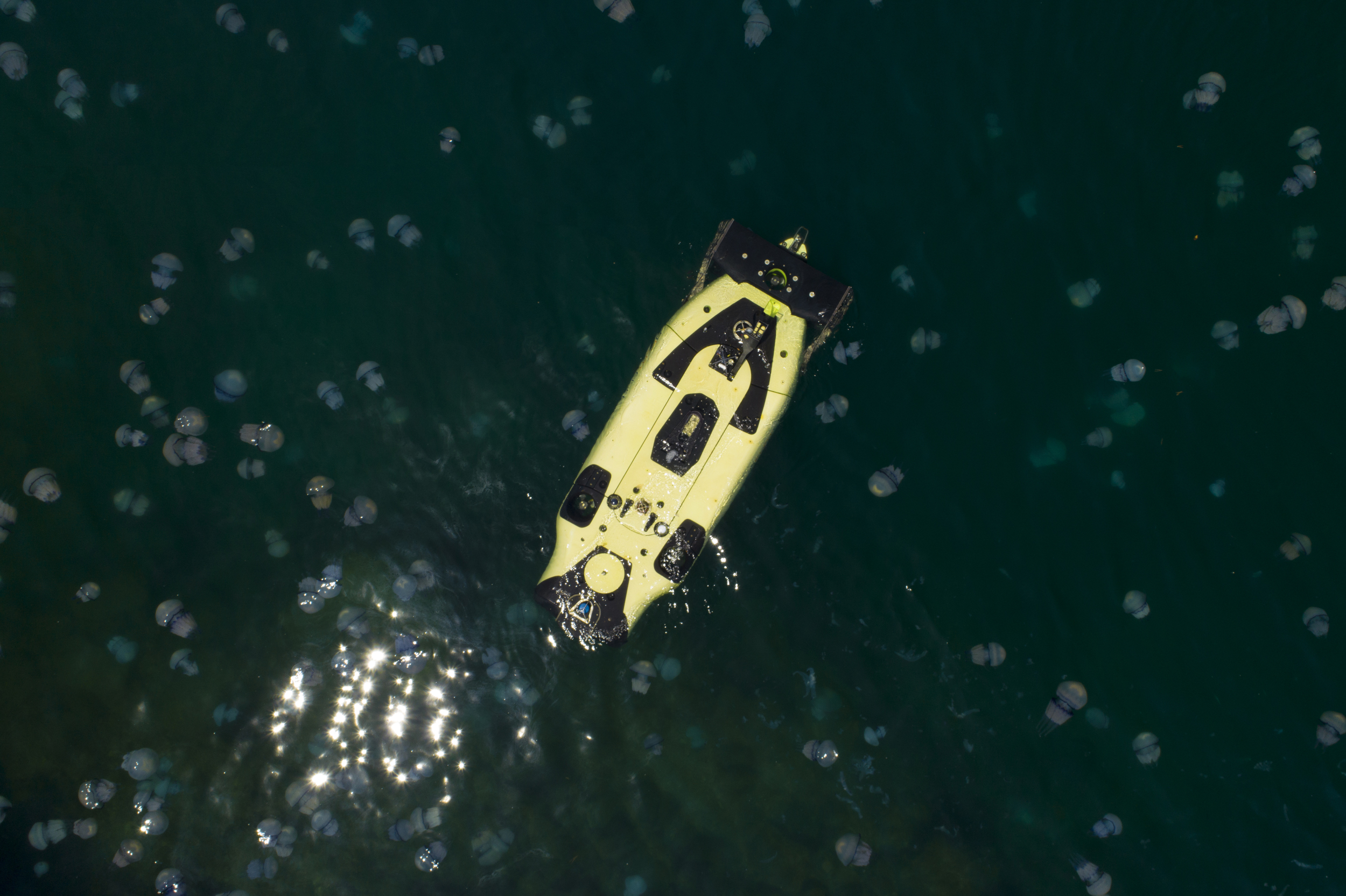
Saipem said on June 28 that Petrobras had awarded it a contract to develop and test an autonomous subsea inspection robotic solution.
The technology will be based on Saipem’s fleet of underwater drones, including the Flatfish AUV. The contract includes qualification of related autonomous drone-based services, enabling future inspection contract options offshore Brazil. Saipem said the contract marks a milestone with global scale use of subsea drones in offshore projects.
The Petrobras contract award was reported at the same time as a major project for Saudi Aramco. Together, the two contracts are valued at about $1 billion.
Azule Picks TechnipFMC for Block 18 Subsea Kit
TechnipFMC announced on June 26 it had won a contract from Azule Energy to supply subsea production systems for the Block 18 infills development project offshore Angola.
The deal marks TechnipFMC’s first subsea production systems contract with Azule Energy but follows the announcement of a flexible pipe supply contract for Azule’s Agogo Integrated West Hub Development.
The existing Block 18 field layout will be reconfigured to accommodate new equipment that will continue to support Azule’s plan to increase production. TechnipFMC will design and manufacture subsea trees, a manifold, subsea distribution equipment, and topside controls, as well as jumpers, flowlines and umbilicals.
Seasystems Snags Ivory Coast Contracts
Scana-owned Seasystems was awarded two contracts for an FPSO project offshore the Ivory Coast, the company announced June 28.
Under the first contract, Seasystems will upgrade and refurbish a mooring system it supplied in 2008. The second contract is for gimbals used for transfer of fluids between two floating units. Seasystems is beginning the projects immediately with work expected to be delivered from the second quarter of 2024.
In April, Seasystems won the mooring system contract for the same project.
Saipem Drilling Units Win Work
Saipem won offshore drilling contracts in the Middle East and the Mediterranean Sea valued at approximately $550 million, the company announced on June 26.
The Perro Negro 7 jackup won a 10-year extension on its existing contract for operations in the Middle East. The sixth-generation semisubmersible Scarabeo 9 won a six-month contract with options for work in the Mediterranean Sea.
Petrofac’s Global Producer III Work Extended
Petrofac announced June 26 its integrated services contract with NEO Energy had been extended.
The life of field extension, valued at $315 million, will see Petrofac continue to deliver operations, maintenance, engineering and construction support for NEO Energy’s Global Producer III FPSO on the U.K. Continental Shelf. The FPSO is expected to remain fully operational until at least 2026 when it is due for its next reclassification by DNV. Both NEO Energy and Petrofac are working hard to further extend field life beyond this date.
OMV Taps TechnipFMC for Berling iEPCI
OMV Norge AS has awarded TechnipFMC an integrated EPCI contract for the Berling subsea tieback gas development in the Norwegian Sea, TechnipFMC announced on June 29.
TechnipFMC will design and install the subsea production systems, controls, pipelines and umbilicals for the development on the Norwegian Continental Shelf. The award follows a six-month integrated FEED study to optimize the field layout and improve the project’s economics. Thermally insulated pipe-in-pipe technology will be used for the flowline in this tieback.
The Norwegian Ministry of Petroleum and Energy announced it had approved OMV’s Berling plan on June 28.
Transocean Equinox Books Work
Transocean Ltd. announced on June 28 a 16-well binding award for the Transocean Equinox in Australia for a consortium of four operators. The estimated 380-day campaign contributes approximately $184 million in backlog, excluding full compensation for mobilization and demobilization. The engagement also includes options that, if fully exercised, could keep the Transocean Equinox working in Australia through 2028.
The contract is expected to begin in first-quarter 2025, directly continuing the rig’s previously announced five-well, 300-day commitment in Australia with a major operator that is expected to start in first-quarter 2024.
Geospace Snags OBN Rental Contract
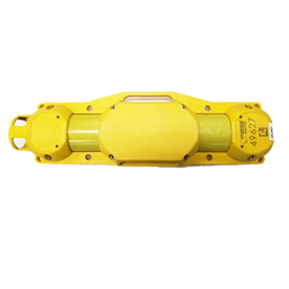
Geospace Technologies Corp. announced on June 27 an extended duration rental contract with an international marine geophysical services provider for Mariner shallow water seabed wireless seismic data acquisition nodes. The value of the agreement is estimated at $20 million, and the company will deliver the Mariner ocean bottom nodes (OBN) in Geospace’s fiscal first-quarter 2024.
Mariner is a shallow water seabed seismic data acquisition node designed with inductive charging and data download, which makes it a connector-free device. The OBN continuously records for up to 70 days and offers accelerated recharging times.
Allseas Uses MDL for Flow Assurance Project
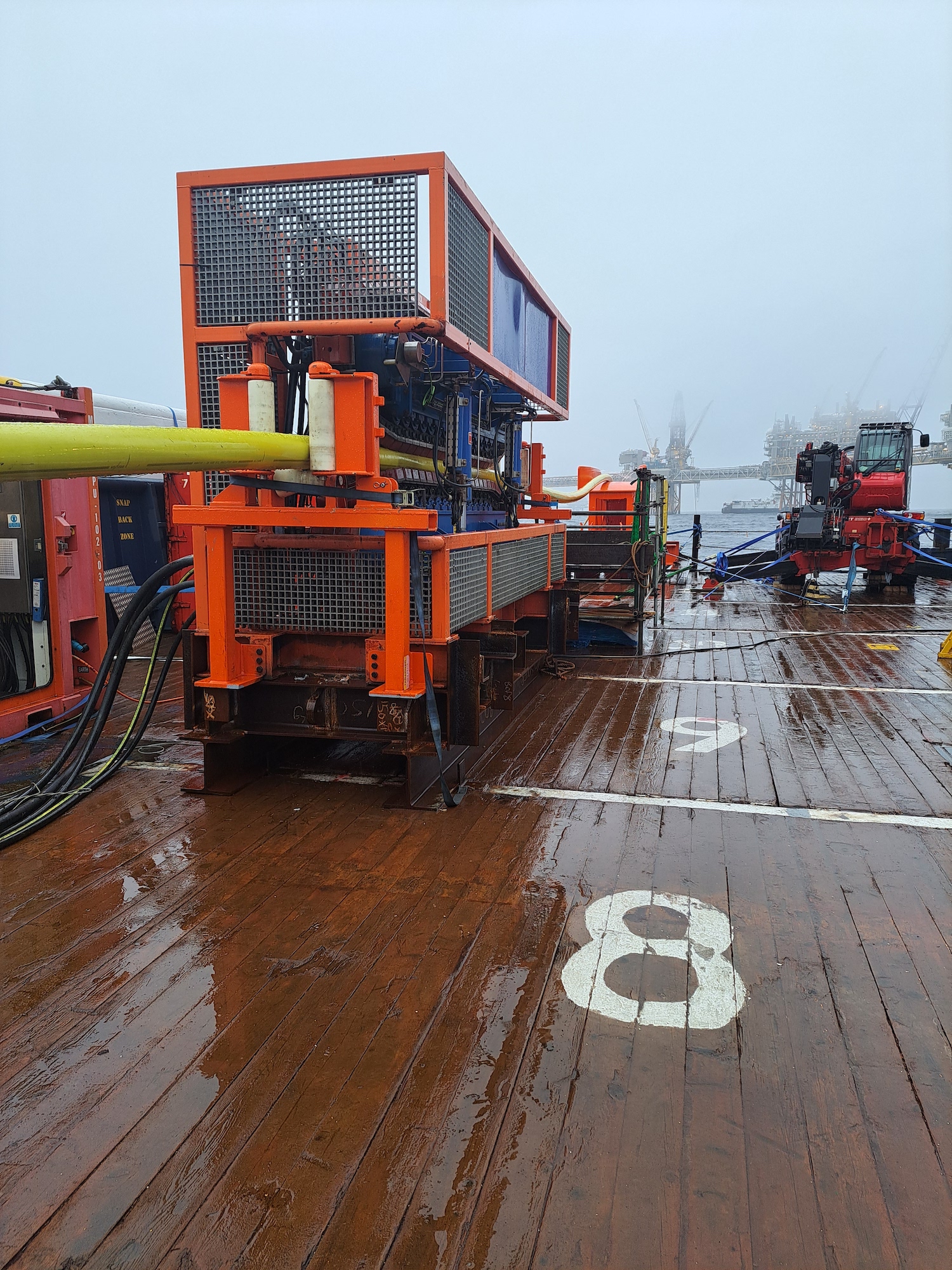
Allseas has deployed an MDL back-deck package to execute a flow assurance project in the Norwegian sector of the North Sea. The two-phase campaign covered installing 30 km of direct electrical heating (DEH) cable onto a flowline system to prevent hydrate and wax formation, which tend to compromise hydrocarbon flow over time, by applying heat to the flowline with the use of electrical current.
In Phase 1, a feeder cable was installed to power the DEH. Phase 2 involved recovering and rerouting the feeder cable to a J-Tube on a platform.
Aquaterra Scoops Up Decommissioning Contract
Aquaterra Energy announced on June 27 winning a multi-million-pound contract with a major Abu Dhabi-based operator, working in partnership with TPMC. The contract will provide offshore riser equipment and services for the decommissioning of eight wells in 80 m of water offshore Abu Dhabi by 2028.
Aquaterra Energy will provide a completion and workover riser system as well as an additional subsea riser system, tieback engineering and rig modifications. Throughout the contract, Aquaterra will provide engineering services, expertise and personnel.
Sparrows Wins Unity Contract
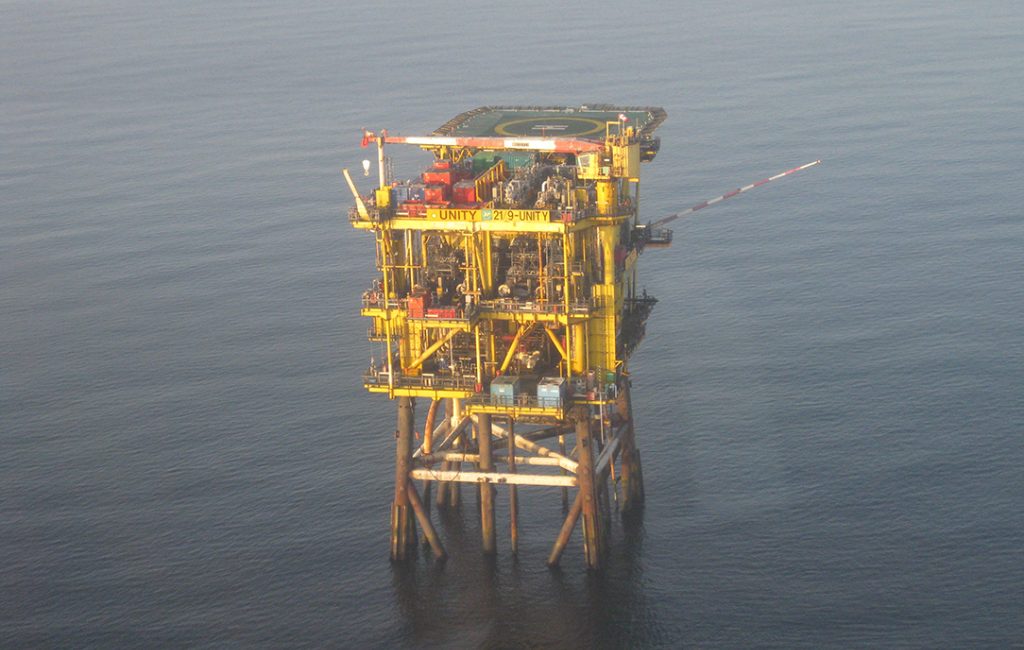
Sparrows Group announced on June 26 winning a three-and-a-half-year contract with INEOS FPS to provide crane and lifting equipment operations, maintenance, engineering and inspection services on the Unity platform in the North Sea.
The contract will include all mechanical, electrical, hydraulic, and structural maintenance of cranes and lifting equipment, which will be executed from the Sparrows headquarters in Aberdeen. In addition, Sparrows will be responsible for re-certification, repair, and overhaul of lifting equipment, as well as offering ad hoc support in the form of its specialist engineering team for management of change, lifting plans, lifting services and more.
INEOS FPS operates the Unity platform, which is in Block 21/9 of the North Sea in 122 m of water.
TGS Signs North Sea OBN Deal
TGS announced on June 30 that it signed a letter of authority (LOA) to conduct a proprietary OBN survey in the North Sea. The survey is planned to start in the third quarter of 2023 and last one to two months.
ABS Approves LCO2 Vessel Designs
ABS announced June 28 that it had given approval in principle to Petronas, Mitsui O.S.K. Lines Ltd. (MOL) and Shanghai Merchant Ship Design and Research Institute for new vessel designs to carry and store liquefied CO2.
ABS reviewed designs for a 96,000 cm of liquefied CO2 floating storage and offloading (FSO) unit and an 87,000 cm carrier.
Datuk Adif Zulkifli, executive vice president and CEO of Upstream Petronas, said carriers for liquefied CO2 transportation play a key role in the carbon capture and storage (CCS) value chain.
Next-Gen Subsea Inspection Scanner Launched
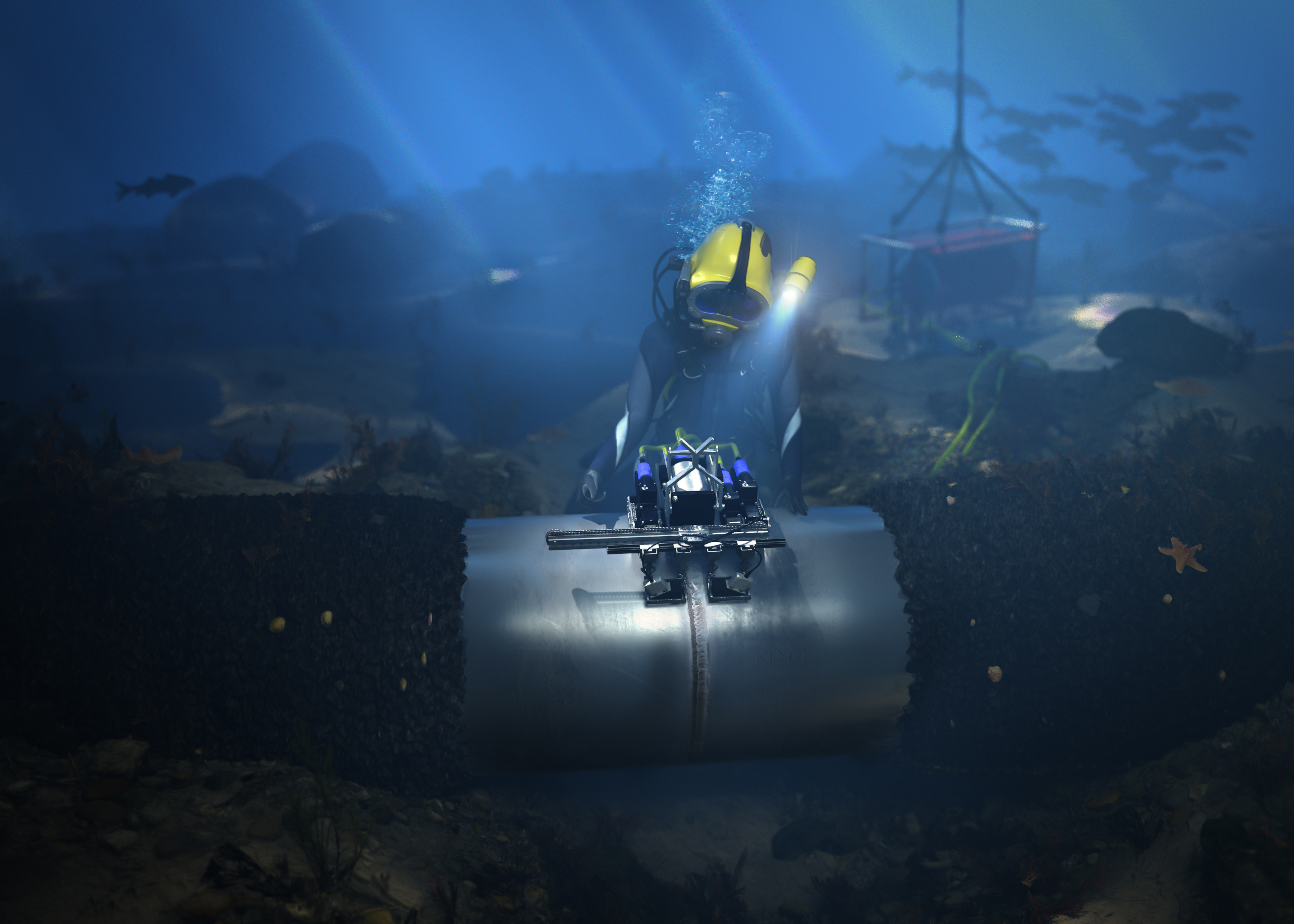
FORCE Technology has introduced a new generation of its P-Scan ultrasound scanner for subsea inspections, the company announced on June 27. The P-Scan 5’s extended modular platform now enables inspection teams to acquire data from previously inaccessible parts of compact subsea infrastructure.
It can be deployed by divers or ROV and the system uses artificial intelligence (AI) and machine learning for data analysis and interpretation, helping optimize the reporting workflow.
Clariant Launches New Demulsification Solution
Clariant Oil Services announced on June 28 it was launching a new, more sustainable demulsification process called PHASETREAT WET for the oil and gas industry.
PHASETREAT WET was designed to meet stricter environmental requirements for oil and water separation while helping operators reduce operational costs, simplify logistics and mitigate safety risks, Clariant said in a press release.
The company said the process reduces chemical volume by up to 75% for offshore operators. For onshore operations, the solution offers additional benefits such as decreased dosages for demulsifiers and de-oilers, improved water treatment quality, more efficient oil treatment and reduction of injection points.
Recommended Reading
Buffett: ‘No Interest’ in Occidental Takeover, Praises 'Hallelujah!' Shale
2024-02-27 - Berkshire Hathaway’s Warren Buffett added that the U.S. electric power situation is “ominous.”
Green Swan Seeks US Financing for Global Decarbonization Projects
2024-02-21 - Green Swan, an investment platform seeking to provide capital to countries signed on to the Paris Agreement, is courting U.S. investors to fund decarbonization projects in countries including Iran and Venezuela, its executives told Hart Energy.
Mitsubishi Makes Investment in MidOcean Energy LNG
2024-04-02 - MidOcean said Mitsubishi’s investment will help push a competitive long-term LNG growth platform for the company.
PrairieSky Adds $6.4MM in Mannville Royalty Interests, Reduces Debt
2024-04-23 - PrairieSky Royalty said the acquisition was funded with excess earnings from the CA$83 million (US$60.75 million) generated from operations.
BP Pursues ‘25-by-‘25’ Target to Amp Up LNG Production
2024-02-15 - BP wants to boost its LNG portfolio to 25 mtpa by 2025 under a plan dubbed “25-by-25,” upping its portfolio by 9% compared to 2023, CEO Murray Auchincloss said during the company’s webcast with analysts.


